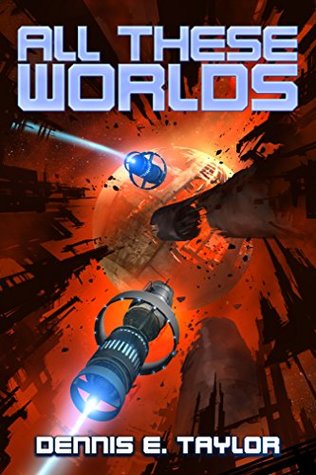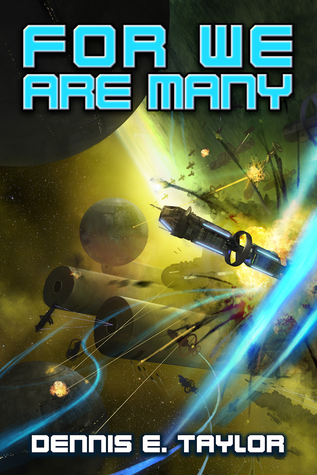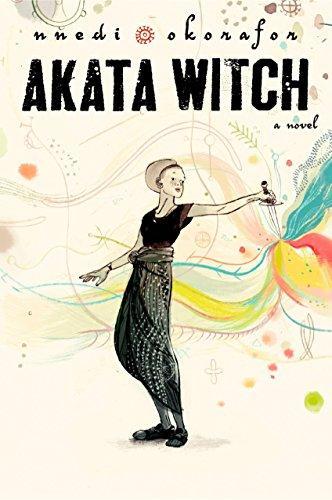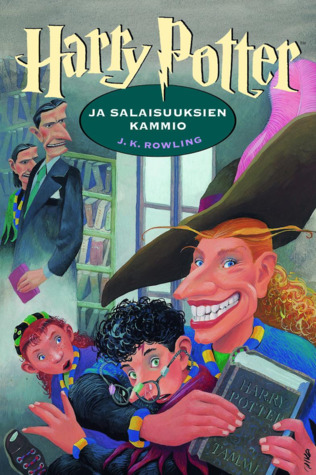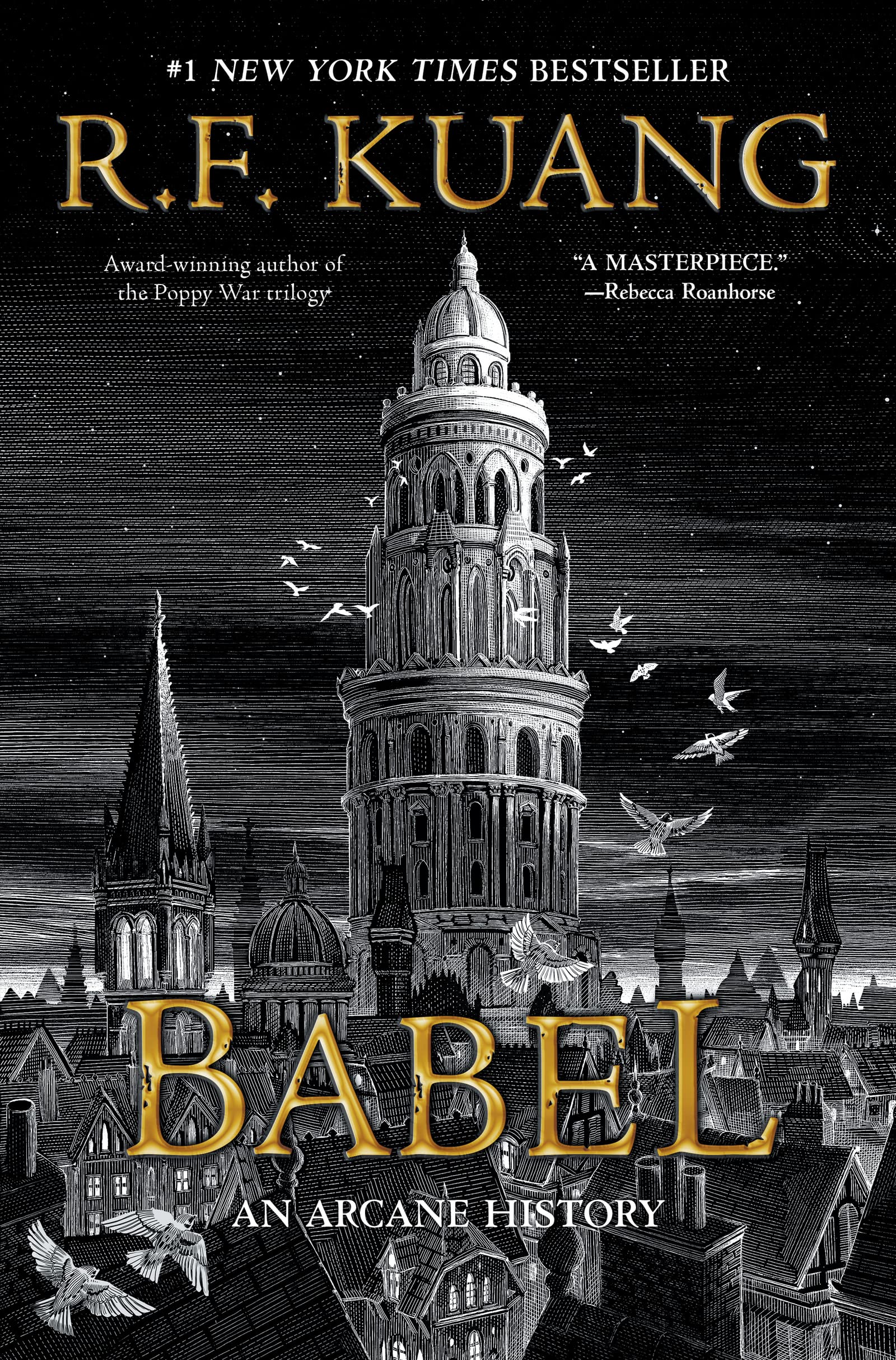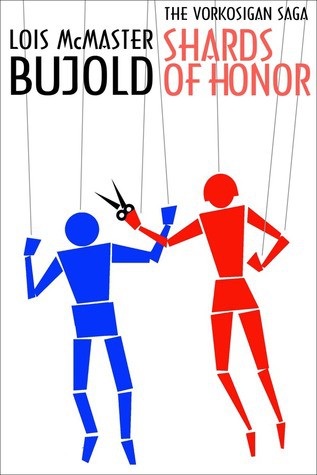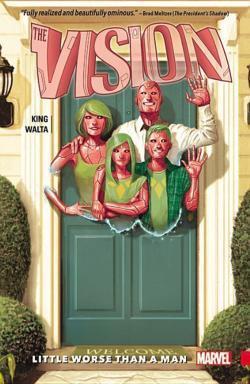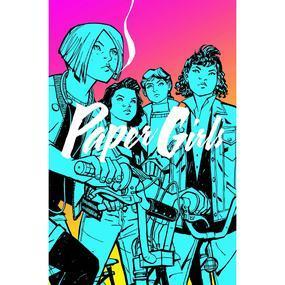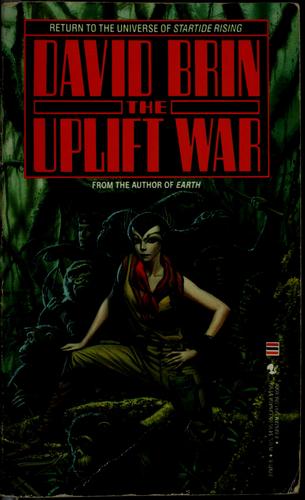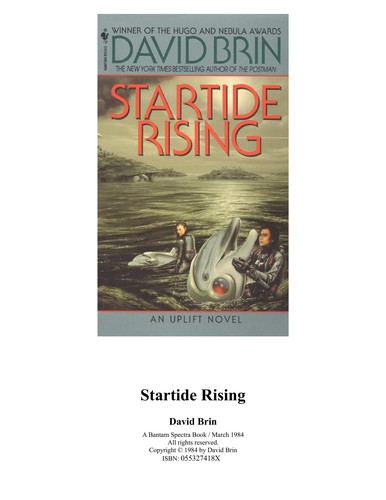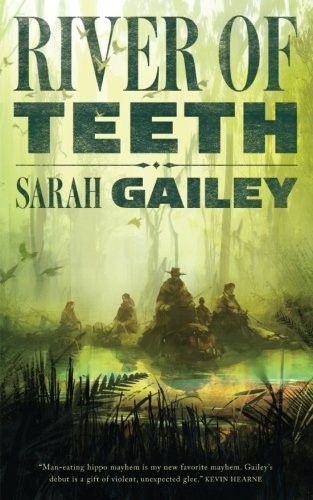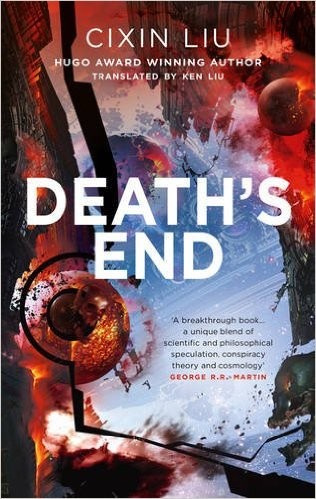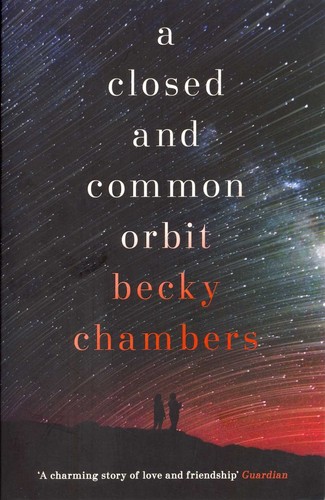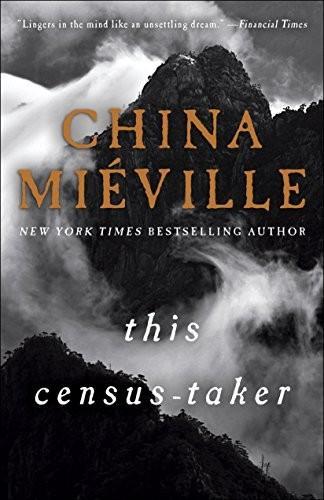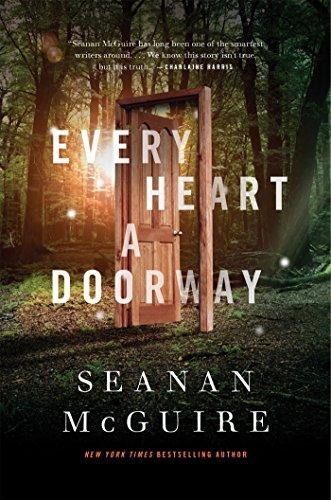The last book of the original Uplift Trilogy, The Uplift War brings us to Garth; a planet almost destroyed by a model example of how the Galactic Uplift process can fail. Earthlings have been given a lease on the planet on the condition they do their best to resurrect the planet's ecosystem.
Unfortunately, the events of [b:Startide Rising|234501|Startide Rising (The Uplift Saga, #2)|David Brin|https://images.gr-assets.com/books/1476445711s/234501.jpg|251634] cause turmoil in the Five Galaxies, and the great clan of Gooksyu-Gubru decide to occupy the planet.
This is basically as far as the book is connected to the previous installment of the series; the spaceship Streaker is mentioned a few times in the book, but it's only a catalyst for the events, and the book is pretty much independent tale of Uplift and the conflict between Galactics and Earthlings.
Each book of the trilogy has focused on aspects of the Uplift, and they've done …
User Profile
Koodinikkari, pyöräilijä, taukoa pitävä boulderoija. Vapaalla luen scifiä, paitsi silloin, kun luen fantasiaa.
This link opens in a pop-up window
Sami Sundell's books
User Activity
RSS feed Back
Sami Sundell rated Paper Girls: 3 stars
Sami Sundell reviewed The uplift war by David Brin
Review of 'The uplift war' on 'Goodreads'
3 stars
The last book of the original Uplift Trilogy, The Uplift War brings us to Garth; a planet almost destroyed by a model example of how the Galactic Uplift process can fail. Earthlings have been given a lease on the planet on the condition they do their best to resurrect the planet's ecosystem.
Unfortunately, the events of [b:Startide Rising|234501|Startide Rising (The Uplift Saga, #2)|David Brin|https://images.gr-assets.com/books/1476445711s/234501.jpg|251634] cause turmoil in the Five Galaxies, and the great clan of Gooksyu-Gubru decide to occupy the planet.
This is basically as far as the book is connected to the previous installment of the series; the spaceship Streaker is mentioned a few times in the book, but it's only a catalyst for the events, and the book is pretty much independent tale of Uplift and the conflict between Galactics and Earthlings.
Each book of the trilogy has focused on aspects of the Uplift, and they've done it partly through humans and their client species. The first book, Sundiver, had mostly human focus. Startide Rising was mostly about neo-dolphins, them having their first own spaceship and all. Now, in the Uplift War, it's time for our simian cousins; many of the main characters in the book are neo-chimps.
That doesn't mean they are running the show, though; as in two earlier books, Brin still gives the clients a father figure. This time it's Robert Oneagle, son of the Garth head honcho Megan Oneagle. He's not quite the generalist genius like Jacob Demwa or Tom Orley of previous books, but he's still a magnificent human being. Refreshingly, that generalist genius slot is taken by Athaclena, the daughter of Tymbrimi ambassador.
The Uplift War is a story about resistance to an occupying force, and as such, it's also a story about resourcefulness. More than that, though, it adds to Brin's universe by giving us more information about uplifting and Galactic politics. For the first time, we are also given a glimpse of the society of another Galactic race, as some of the chapters describe the happenings in Gubru empire.
Brin's world of Five Galaxies is a wonderful, inventive universe that I'd like to read plenty more of. This book, however, didn't quite match the expectations. It spends too much time clumsily describing relationships and personal ponderings, and too little on the bigger picture of even Garth, not to mention the galaxy.
The Uplift War is the longest book of the original trilogy. It isn't quite earned, though: I think it's also the one that would most benefit from losing some of its contents.
Sami Sundell reviewed Startide Rising by David Brin (Bantam spectra book)
Review of 'Startide Rising' on 'Goodreads'
4 stars
I read Startide Rising about 30 years ago, back when it was first translated into Finnish. I remember it being a bit confusing and tedious to read. I did like it, later bought the first three books of the Uplift Saga in English and decided to reread it when I have time.
It took several years, and I'm happy to say it was a much more entertaining read than I anticipated.
Brin's Uplift world is full of ideas. The basis of sentient galactic species being part of a big happy family living on what past generations stored in the Library is an interesting concept, and it creates a conflict that makes strange bedfellows.
In case of Startide Rising, that conflict rises up as the first spaceship with a dolphin crew happens to find an armada of spaceships that is at least two billion years old. They get into trouble and …
I read Startide Rising about 30 years ago, back when it was first translated into Finnish. I remember it being a bit confusing and tedious to read. I did like it, later bought the first three books of the Uplift Saga in English and decided to reread it when I have time.
It took several years, and I'm happy to say it was a much more entertaining read than I anticipated.
Brin's Uplift world is full of ideas. The basis of sentient galactic species being part of a big happy family living on what past generations stored in the Library is an interesting concept, and it creates a conflict that makes strange bedfellows.
In case of Startide Rising, that conflict rises up as the first spaceship with a dolphin crew happens to find an armada of spaceships that is at least two billion years old. They get into trouble and then run into hiding in Kithrup, a forgotten waterworld.
I'll avoid spoilers here, but let's say the whole book is a study on the morality and effects of uplifting - genetically altering species into sentient and/or otherwise suitable form. The story is told from multiple points of view, where some of the characters and interesting and some... well, not so much.
The book is 35 years old, and sometimes it shows. Particularly the way men and women - or mels and fems - behave in the book: in addition to being a skilled, psi-wielding genius, Gillian is also described as being beautiful, occasionally getting naked and otherwise swimming around in bikinis. She's genetically matched to his man, Tom Orley, who's naturally even more magnificent.
That's another thing: Tom Orley, as Jacob Demwa in [b:Sundiver|96472|Sundiver (The Uplift Saga, #1)|David Brin|https://images.gr-assets.com/books/1388176548s/96472.jpg|461555], is a true renaissance man who's assertive, invents things like MacGyver and is guaranteed to save the day, no matter what the problem is.
30 years ago this was the only book translated into Finnish. This time, I'm happy to immediately continue with the next book in the series.
Sami Sundell reviewed Taste of Marrow by Sarah Gailey
Review of 'Taste of Marrow' on 'Goodreads'
3 stars
Hippoful story comes to an end
River of Teeth had an interesting premise that made it different from other Western caper stories. Taste of Marrow continues from where River of Teeth left, but it slowly runs out of steam. Where River of Teeth was warm-hearted, Taste of Marrow spends too many pages brooding. Its plot jumps around and it relies too much on the feral hippos to keep the story exciting.
The story ends in a perfect, hopeful note. On the other hand, Taste of Marrow also introduced a new character that could be a central figure for future sequels. Let's see what the future brings.
Sami Sundell reviewed River of Teeth by Sarah Gailey
Review of 'River of Teeth' on 'Goodreads'
4 stars
River of Teeth is based on an idea from the early 1900s when someone got the bright idea of bringing hippos to Americas. Sarah Galley takes that idea and runs with it: in River of Teeth, Mississippi has been dammed to create optimal breeding grounds for hippos.
Unfortunately, some of the hippos turned feral and are now a perfect tool for a ruthless riverboat magnate to exert - and expand - his control on the river area. It's up to Winslow Houndstooth to get rid of the feral hippos.
River of Teeth is a fun book based on a fun premise - particularly knowing that premise is an actual plan by the US government. It has somewhat corny characters, and it takes a while to get to actual hippos, but that doesn't matter too much.
In some ways, this book reminds me of [b:The Builders|25667920|The Builders|Daniel Polansky|https://images.gr-assets.com/books/1434059716s/25667920.jpg|45491135] by [a:Daniel Polansky|4475715|Daniel …
River of Teeth is based on an idea from the early 1900s when someone got the bright idea of bringing hippos to Americas. Sarah Galley takes that idea and runs with it: in River of Teeth, Mississippi has been dammed to create optimal breeding grounds for hippos.
Unfortunately, some of the hippos turned feral and are now a perfect tool for a ruthless riverboat magnate to exert - and expand - his control on the river area. It's up to Winslow Houndstooth to get rid of the feral hippos.
River of Teeth is a fun book based on a fun premise - particularly knowing that premise is an actual plan by the US government. It has somewhat corny characters, and it takes a while to get to actual hippos, but that doesn't matter too much.
In some ways, this book reminds me of [b:The Builders|25667920|The Builders|Daniel Polansky|https://images.gr-assets.com/books/1434059716s/25667920.jpg|45491135] by [a:Daniel Polansky|4475715|Daniel Polansky|https://images.gr-assets.com/authors/1473743855p2/4475715.jpg]. Both have a group of people - or in case of The Builders, animals - on a dangerous mission, led by a skilled veteran driven by need of revenge. River of Teeth is lighter, and it has more likeable characters - and it's got a sequel.
Sami Sundell rated Ole luonani aina: 3 stars
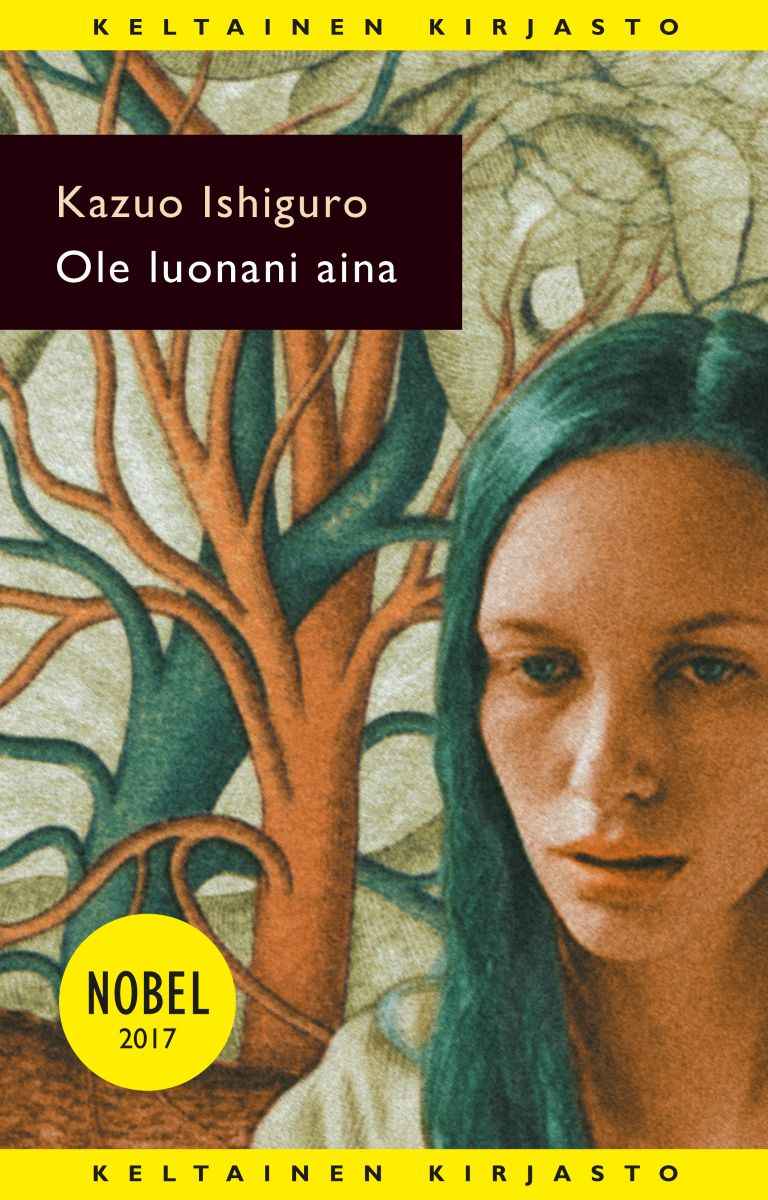
Ole luonani aina by Kazuo Ishiguro (Keltainen kirjasto, #367)
Kathy, Ruth ja Tommy ovat oppilaita Hailshamin kodikkaassa sisäoppilaitoksessa Englannin maaseudulla. Siellä olevia lapsia varjellaan tarkoin ulkomaailmalta, ja heidät kasvatetaan …
Sami Sundell rated Anansi Boys: 4 stars
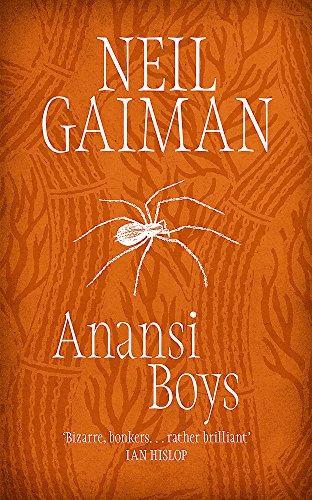
Anansi Boys by Neil Gaiman
Anansi Boys is a fantasy novel by English writer Neil Gaiman. In the novel, "Mr. Nancy" — an incarnation of …
Sami Sundell rated The Truth: 4 stars
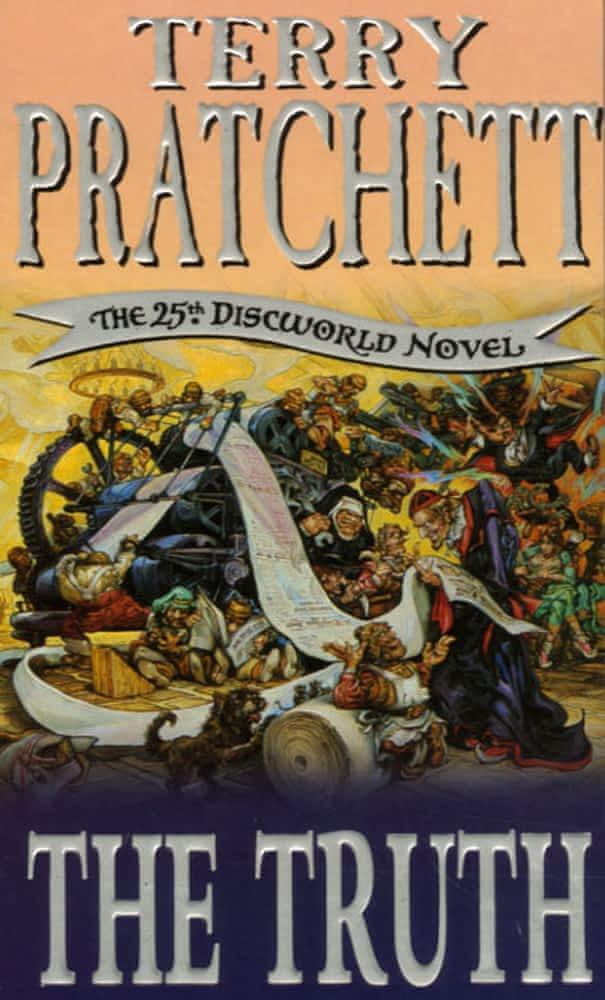
The Truth by Terry Pratchett
The denizens of Ankh-Morpork fancy they've seen just about everything. But then comes the Ankh-Morpork Times, struggling scribe William de …
Sami Sundell rated The Stone Sky: 5 stars
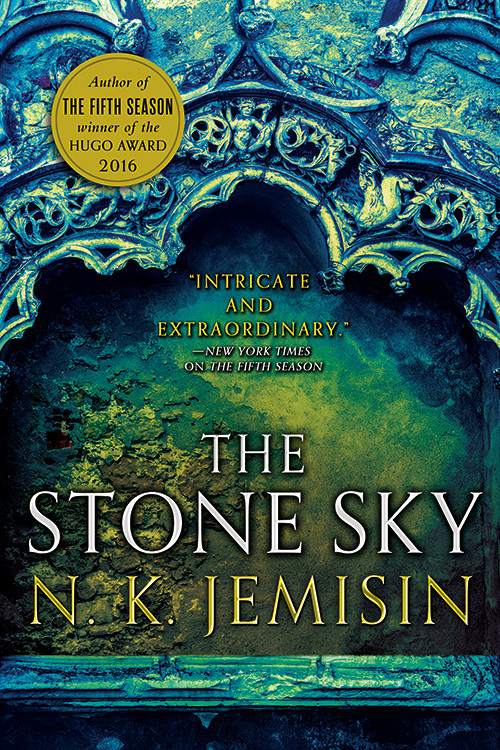
The Stone Sky by N. K. Jemisin (The Broken Earth, #3)
THIS IS THE WAY THE WORLD ENDS... FOR THE LAST TIME.
The Moon will soon return. Whether this heralds the …
Sami Sundell reviewed Death's End by Liu Cixin (Remembrance of Earth's Past, #3)
Review of "Death's End" on 'Goodreads'
2 stars
Wrapup of the Remembrance of Earth's Past trilogy focuses on the life and decisions of Cheng Xin, a lone woman traveling through time (via freezer) and spiraling towards the end of humankind.
I read [b:The Three-Body Problem|20518872|The Three-Body Problem (Remembrance of Earth’s Past, #1)|Liu Cixin|https://images.gr-assets.com/books/1415428227s/20518872.jpg|25696480] two years ago, when it was nominated for a Hugo Award, and thought it was clumsy in its science and tedious in story-telling. I happily skipped [b:The Dark Forest|23168817|The Dark Forest (Remembrance of Earth’s Past, #2)|Liu Cixin|https://images.gr-assets.com/books/1412064931s/23168817.jpg|42713958], but now that Death's End was again nominated for Hugo, I decided to give this third part of the series a go.
Luckily, Death's End doesn't really rely on The Dark Forest - or on The Three-Body Problem, either. There are some basic concepts that are useful, but since the last book focuses on Cheng Xin and, through her, humanity, it's a self-contained story.
And... I didn't like …
Wrapup of the Remembrance of Earth's Past trilogy focuses on the life and decisions of Cheng Xin, a lone woman traveling through time (via freezer) and spiraling towards the end of humankind.
I read [b:The Three-Body Problem|20518872|The Three-Body Problem (Remembrance of Earth’s Past, #1)|Liu Cixin|https://images.gr-assets.com/books/1415428227s/20518872.jpg|25696480] two years ago, when it was nominated for a Hugo Award, and thought it was clumsy in its science and tedious in story-telling. I happily skipped [b:The Dark Forest|23168817|The Dark Forest (Remembrance of Earth’s Past, #2)|Liu Cixin|https://images.gr-assets.com/books/1412064931s/23168817.jpg|42713958], but now that Death's End was again nominated for Hugo, I decided to give this third part of the series a go.
Luckily, Death's End doesn't really rely on The Dark Forest - or on The Three-Body Problem, either. There are some basic concepts that are useful, but since the last book focuses on Cheng Xin and, through her, humanity, it's a self-contained story.
And... I didn't like it any better than The Three-Body Problem. The book has absolutely huge, dramatic events, but story-telling seems completely disinterested. Cheng Xin is described to be very emotional, but it didn't manage to evoke any emotions in me, the reader.
One of the problems is that the story is unbelievable in multiple levels. The humanity is depicted as misanthropic and self-involved, where it's every man for himself. Time and time again people get exterminated, and time and time again that's somehow forgotten.
And in many of those occasions, it's Cheng Xin who has the final say on what to do - and every time she chooses wrong. Broken, she runs to a freezer, sleeps a handful of years, wakes up, and is presented with another decision she can choose poorly on.
In a weird sexist move, when there's a peace for a few decades, humankind turns completely feminine - and the book makes it clear that's a weakness. When the peace ends, men magically recover their masculinity.
And, as with The Three-Body Problem, there's plenty of discussion about dimensions, and it still makes as little sense as it did in the first book.
Death's End presents us with some great ideas. It has some side plots that I would kind of like to see explored. However, after reading these two books, even if I saw a book about the fate of the galactic humans, I'd have hard time convincing myself to read it.
Sami Sundell reviewed A Closed and Common Orbit by Becky Chambers (Wayfarers, #2)
Review of 'A Closed and Common Orbit' on 'Goodreads'
4 stars
When we last saw her, Lovelace left Wayfarer with Pepper, to get away from the crew that sorely missed her previous self. Now, she has to learn to live while recognizing she's outlaw in the strictest sense: if authorities notice she's an AI, it means a certain death sentence.
A Closed and Common Orbit has two story lines: one is about Sidra learning to cope her new life of not being installed in a ship but possessing a body kit. The other is about Pepper's childhood as a genetically engineered factory slave. Both stories deal with definition of life and surviving in a hostile environment. Sidra's story is more about the former, Pepper's about the latter, and together they complement each other even if they rarely mix.
[b:The Long Way to a Small, Angry Planet|22733729|The Long Way to a Small, Angry Planet (Wayfarers, #1)|Becky Chambers|https://images.gr-assets.com/books/1405532474s/22733729.jpg|42270825] was a feel good story …
When we last saw her, Lovelace left Wayfarer with Pepper, to get away from the crew that sorely missed her previous self. Now, she has to learn to live while recognizing she's outlaw in the strictest sense: if authorities notice she's an AI, it means a certain death sentence.
A Closed and Common Orbit has two story lines: one is about Sidra learning to cope her new life of not being installed in a ship but possessing a body kit. The other is about Pepper's childhood as a genetically engineered factory slave. Both stories deal with definition of life and surviving in a hostile environment. Sidra's story is more about the former, Pepper's about the latter, and together they complement each other even if they rarely mix.
[b:The Long Way to a Small, Angry Planet|22733729|The Long Way to a Small, Angry Planet (Wayfarers, #1)|Becky Chambers|https://images.gr-assets.com/books/1405532474s/22733729.jpg|42270825] was a feel good story that had lovable characters but was a bit superficial: it focused on people, places and backgrounds so much that the plot itself was left lacking.
This one has no such problem. This book, as well as the first one, is about people and relationships, but now there's a clear focus. Both storylines have a protagonist that is always present, and both have a clear starting point and an enjoyable ending.
A Closed and Common Orbit definitely isn't hard science fiction. It's a story about friendship, caring and humanity, and as such it could be set against any background. In this story, though, one of the main characters happens to be of artificial origin, and that makes all the difference. In a genre that seems to be filled with dystopias and darkness, I, for one, heartily welcome something like Wayfarer books.
Sami Sundell reviewed This Census-Taker by China Miéville
Review of 'This Census-Taker' on 'Goodreads'
2 stars
This is a story about a boy. The boy witnesses one of his parents killing the other. This launches a narrative that takes us through the aftermath.
This Census-Taker is a weird book. There are some hints that the story is set in post-apocalyptic future, but it might just as well happen in early 1900s - I'm not exactly sure what tipped me towards that era, but that feeling stuck.
It moves between first, second and third person story-telling, sometimes in the middle of a sentence, and seemingly without any function or structure. Some people suggest this is to convey how the memories of the protagonist are in disarray. For me, it just adds some mild annoyance.
I'm fine with leaving things in the dark, being open-ended, (somewhat) non-linear story-telling. I just don't find any true content in this book. Miéville uses lots of pages to tell us nothing.
According …
This is a story about a boy. The boy witnesses one of his parents killing the other. This launches a narrative that takes us through the aftermath.
This Census-Taker is a weird book. There are some hints that the story is set in post-apocalyptic future, but it might just as well happen in early 1900s - I'm not exactly sure what tipped me towards that era, but that feeling stuck.
It moves between first, second and third person story-telling, sometimes in the middle of a sentence, and seemingly without any function or structure. Some people suggest this is to convey how the memories of the protagonist are in disarray. For me, it just adds some mild annoyance.
I'm fine with leaving things in the dark, being open-ended, (somewhat) non-linear story-telling. I just don't find any true content in this book. Miéville uses lots of pages to tell us nothing.
According to the census-taker, you keep three books, and one of them you need to write because it costs too much to not write it. It may well be that Miéville needed to write this book. I just don't see any reason to read (or recommend) it.
Sami Sundell reviewed Every Heart a Doorway by Seanan McGuire (Wayward Children, #1)
Review of 'Every Heart a Doorway' on 'Goodreads'
4 stars
Eleanor West's boarding school has some very peculiar pupils. To be frank, their parents think they've gone off the rails, but the children and Ms West know better. All the children have visited a land of fantasy. It's different for everyone, but one thing they all share: they were cast out.
West claims to help the children, but not in the way their parents think; she lets the children compare and cultivate their experiences, encouraging them in ways for finding a way back to their fantasy world. After all, she was once one of them.
Every Heart a Doorway is about what happens to Peter Pan, Alice, children of Narnia, when they grow up. Unfortunately, when Nancy enters the school, what happens is death.
It's a dense but wonderful book, with just the right amount of sense of wonder reminiscent of those old children's stories: it's not based on them …
Eleanor West's boarding school has some very peculiar pupils. To be frank, their parents think they've gone off the rails, but the children and Ms West know better. All the children have visited a land of fantasy. It's different for everyone, but one thing they all share: they were cast out.
West claims to help the children, but not in the way their parents think; she lets the children compare and cultivate their experiences, encouraging them in ways for finding a way back to their fantasy world. After all, she was once one of them.
Every Heart a Doorway is about what happens to Peter Pan, Alice, children of Narnia, when they grow up. Unfortunately, when Nancy enters the school, what happens is death.
It's a dense but wonderful book, with just the right amount of sense of wonder reminiscent of those old children's stories: it's not based on them but it draws strength from them.
Sami Sundell reviewed Art of Space Travel by Nina Allan
Review of 'Art of Space Travel' on 'Goodreads'
2 stars
Hmm. Call me old-fashioned, but when reading a Hugo nominee, I'd expect something that could be categorized as fantasy or science fiction.
Instead, what we have here is a short story about the relationship between a daughter and her single parent mother, who's apparently suffering from dementia and other, unnamed ailments. Despite this being set 50 years into the future, there's apparently very little that's changed - people still read (paper) books, use mobiles, watch TV and apparently use Ajax.
It's about managing expectations, and this time, my expectations ended up being sorely mismanaged.

